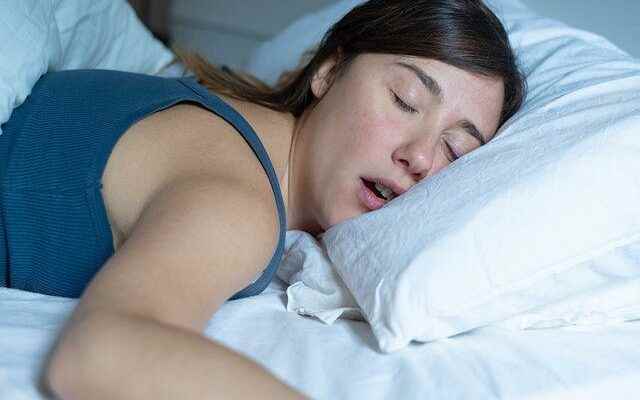Snoring are disturbing sounds made during sleep. Although snoring is not taken very seriously, if left untreated, it can cause serious disorders such as sleep apnea. Although snoring does not disturb the sleeping person, it disturbs the people around him. Snoring is more common especially in men. Ear Nose and Head and Neck Surgeon Specialist Op. Dr. Bahadır Baykal gave information about all the curious about snoring.
WHY DOES SNORING OCCUR? WHY IS IT MORE FREQUENCY IN MEN?
Snoring is a noisy sound that occurs when air passes through the pharynx and nasal cavity, which is narrowed for any reason, and vibrates the surrounding soft tissues. In women, fat is mostly in the hip area, and in men, around the neck and abdomen. Therefore, this situation increases the tendency to snore in men. Of course, snoring is an advantage for women in the differences in the muscle structure of women.
IS snoring a disease? WHEN SHOULD YOU THINK A DISEASE? WHAT IS SNORING TREATMENT?
Snoring without breathing during sleep does not cause any harm to the person. If there are complaints such as insomnia, drowsiness, fatigue and loss of concentration with snoring, it should be considered as a disease.
Treatment of simple snoring is directed towards the cause. Simple measures such as losing weight, quitting smoking and alcohol, exercising and sleeping with a high pillow can be tried at the beginning. But if there is a problem caused by nasal congestion or the root of the soft palate-tongue, it must be handled and treated separately.
WHAT IS SLEEP APNES? WHICH AGE GROUP IS IT MORE FREQUENTLY? IS IT SEEN IN YOUNG MEN?
Sleep apnea means cessation of breath during sleep. Breathing stops may recur frequently throughout the night. While it is seen at the rate of 4% in young men, this rate reaches 28% in men after the age of 60. Short, fat-belly, short-necked men are at risk. Problems such as large tongue, high hard palate, drooping soft palate, long uvula, small and backward jaw structure, large tonsils, nasal concha predispose to the disease.
HOW DO SNORING AND SLEEP APNES HAVE NEGATIVE EFFECTS ON MAN’S BODY?
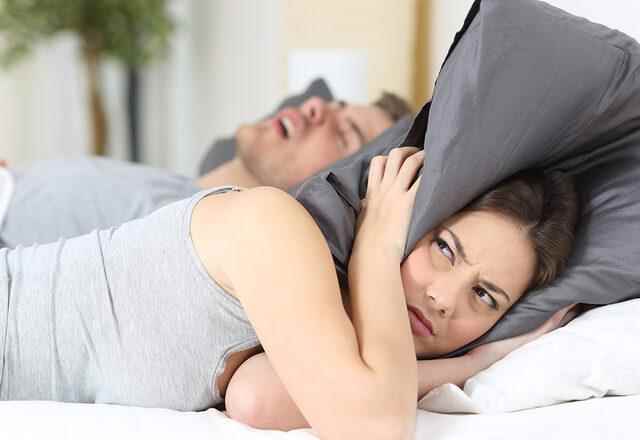
Sleep quality is impaired. One cannot get up in the morning rested in any way. He feels tired and sluggish. During the day, there are naps whenever possible. Severe dry mouth and headache in the morning, irritability, difficulty in concentration, forgetfulness, night sweats and decreased sexual desire, impotence (in men) are some of the symptoms. Apart from these, the risk of heart attack and especially nighttime stroke (stroke) increases due to less oxygen supply to vital organs (such as the heart-brain). In addition, there may be irregularities in the heartbeat during or at the end of breathing pauses during sleep, and even short-term pauses in advanced cases, elevations in pulse rate and blood pressure.
HOW IS SLEEP APNEA DIAGNOSED? WOULD YOU RECOMMEND THE SLEEP LABORATORY TO EVERYONE?
If sleep apnea is suspected, sleep testing is essential to confirm the diagnosis and determine the severity of the disease. All night sleep analysis should be done in the sleep laboratory and many parameters should be recorded and evaluated.
WHAT IS DONE IN THE SLEEP LABORATORY? CAN YOU TELL ME STEP BY STEP?
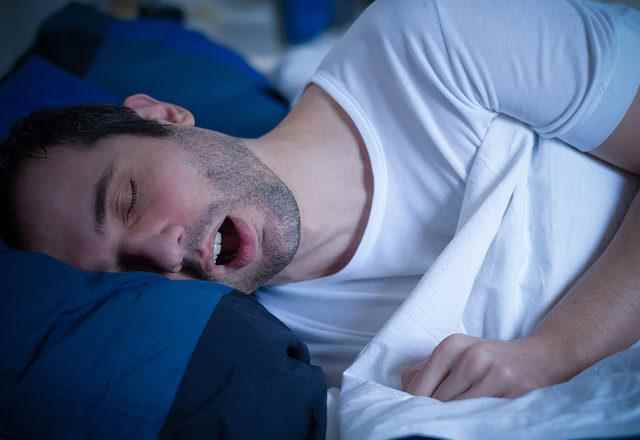
In the sleep laboratory, when the patient is awake, when he is asleep, in which periods of sleep he is in, and their proportions during the night are determined. For this, electroencephalography, eye movements, as well as muscle activity recordings from the chin and legs; In order to determine respiratory events, many parameters such as mouth-nose breathing, respiratory movements of the chest and abdomen, blood partial oxygen pressure, heart rate are recorded with electrodes, belts and other sensors placed on the head and body.
HOW TO HEAL SLEEP APNEA?
First of all, the person’s social habits should be controlled, such as smoking and alcohol, weight loss and exercise should be done. A positive pressure air mask called CPAP can be used in suitable patients. In addition, oral apparatus is sometimes useful. With CPAP, a continuous positive pressure is created in the mouth and the tissues are prevented from loosening, but it is very difficult for the patients to adapt to this device.
WHEN IS SURGERY RECOMMENDED? WHAT IS DONE IN THE TREATMENT, HOW ARE THE RESULTS?
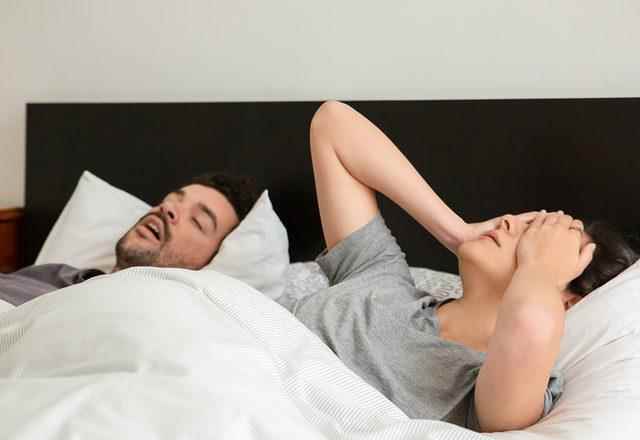
The success of surgical treatment is when you perform the right surgery on the right patient. If there is severe congestion in the nose; nasal bone curvature and nasal concha enlargement should be corrected by surgery. Those with root of tongue and soft palate problems require a more careful approach. The most frequently applied surgical method is UPPP surgery (uvulo-palato-pharyngo-plasty). With this surgery, we aim to reduce the soft tissue excess in the upper respiratory tract, especially the tonsils, uvula and soft palate, and to tighten the tissues. This method may not always give accurate results, snoring and apnea may occur years later. For this reason, it is appropriate to do it in selected patients. In addition to these, tongue suspension, radiofrequency application to the tongue root and jaw advancement surgeries are also performed in suitable patients.
ARE THERE PERSONAL MEASURES THAT PERSON CAN TAKE AGAINST SLEEP APNEA, EXERCISE TO DO?
First of all, one’s social habits should be controlled, smoking and alcohol should be stopped. Light foods should be eaten at night, flour and sugar should be avoided, if there is obesity, weight should be lost. Regular walking, swimming and exercise should be done.
WHAT HAPPENS IF SLEEP APNES IS NOT TREATED?
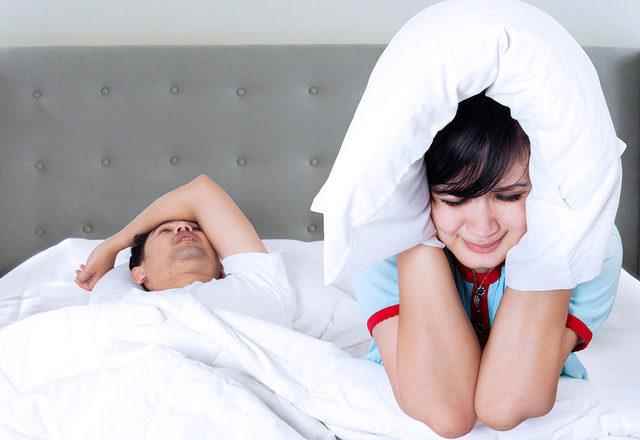
A person with sleep apnea also has a decreased amount of oxygen in the blood compared to normal. Insomnia and fatigue affect the quality of life negatively. Apart from this, clean blood does not go to vital areas related to the heart-circulatory system and the brain. This triggers the formation of many diseases, from heart attack to sudden stroke, from hypertension to sexual dysfunction and even obesity. Therefore, the diagnosis of sleep apnea, if any, must be made without delay and it must be treated!
